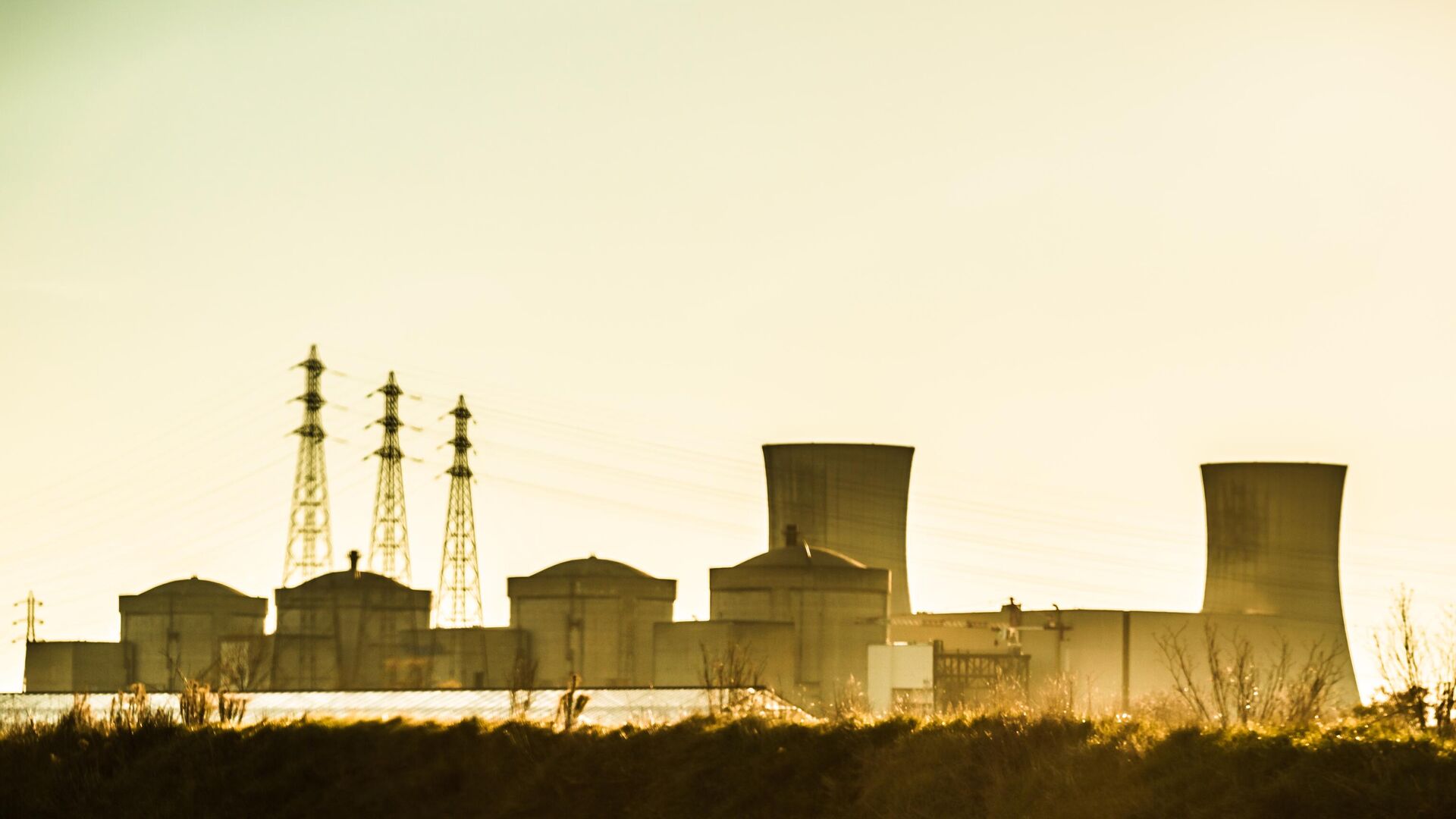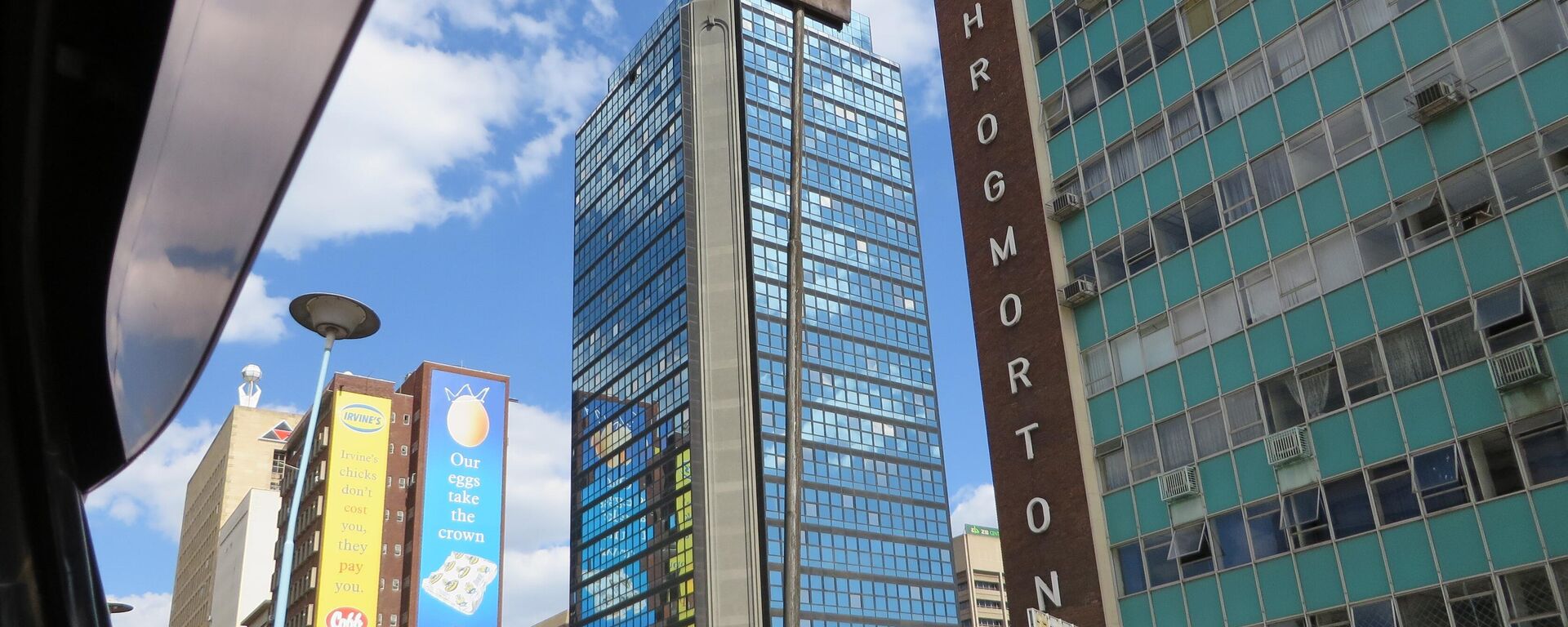https://en.sputniknews.africa/20241202/zimbabwe-turnes-to-iaea-to-study-possibilities-of-using-nuclear-energy-in-country-report-says-1069509744.html
Zimbabwe Turns to IAEA to Study Possibilities of Using Nuclear Energy in Country, Report Says
Zimbabwe Turns to IAEA to Study Possibilities of Using Nuclear Energy in Country, Report Says
Sputnik Africa
In late November, both Zambia and Zimbabwe suffered nationwide power outages, the national energy companies reported. The blackouts were reportedly caused by... 02.12.2024, Sputnik Africa
2024-12-02T17:13+0100
2024-12-02T17:13+0100
2024-12-02T17:42+0100
sub-saharan africa
zimbabwe
southern africa
nuclear energy
nuclear power plant (npp)
international atomic energy agency (iaea)
energy
electricity
parliament
https://cdn1.img.sputniknews.africa/img/07e7/09/1b/1062398473_0:161:3068:1887_1920x0_80_0_0_e2366db649a7bb2afd340fcc91771503.jpg
Zimbabwe has turned to the International Atomic Energy Agency (IAEA) to study options of using nuclear energy in the country for meeting growing demand in electricity, Energy Minister Edgar Moyo said during a session in the Zimbabwean parliament National Assembly last week, a local newspaper reported.According to the report, the Kariba Hydro Power Plant provides most of the electricity to Zimbabwe, its capacity accounts for over 1,000 MW. The media noted that the power generation in the plant was negatively influenced by the droughts.In April, Zimbabwe declared drought a national disaster, with President Emmerson Mnangagwa saying the country needed $2 billion in aid to help millions of people who are facing hunger. In Southern Africa, Zimbabwe was the third country to declare drought a national disaster, after Malawi and Zambia. The measure allows for more resources to address the crisis.In March, a local newspaper reported that Zimbabwe licensed 10 more independent power producers (IPP), which are to start generating 271MW of electricity in 12-24 months. According to the media, the licenses were issued under the government project support agreement, which now involves almost 40 private license holders.
https://en.sputniknews.africa/20240302/zimbabwe-to-launch-renewable-energy-fund-with-initial-investment-of-45-million-state-media-reports-1065352683.html
zimbabwe
southern africa
Sputnik Africa
feedback@sputniknews.com
+74956456601
MIA „Rossiya Segodnya“
2024
News
en_EN
Sputnik Africa
feedback@sputniknews.com
+74956456601
MIA „Rossiya Segodnya“
Sputnik Africa
feedback@sputniknews.com
+74956456601
MIA „Rossiya Segodnya“
zimbabwe, southern africa, nuclear energy, nuclear power plant (npp), international atomic energy agency (iaea), energy, electricity, parliament
zimbabwe, southern africa, nuclear energy, nuclear power plant (npp), international atomic energy agency (iaea), energy, electricity, parliament
Zimbabwe Turns to IAEA to Study Possibilities of Using Nuclear Energy in Country, Report Says
17:13 02.12.2024 (Updated: 17:42 02.12.2024) In late November, both Zambia and Zimbabwe suffered nationwide power outages, the national energy companies reported. The blackouts were reportedly caused by system disturbance in the interconnected power networks of two African countries.
Zimbabwe has turned to the International Atomic Energy Agency (IAEA) to study options of using nuclear energy in the country for meeting growing demand in electricity, Energy Minister Edgar Moyo said during a session in the Zimbabwean parliament National Assembly last week, a local newspaper reported.
"As Zimbabwe, we have expressed our interest to the IAEA our desire to get into nuclear energy for peaceful purposes. They are with us, and they are taking us through. Committees have been set up, which are looking into that and there are milestones that we have to meet as a country before we get to the stage of developing small modular reactors so that our contribution to the clean energy mix is heightened," Moyo was quoted as saying by the media.
According to the report, the Kariba
Hydro Power Plant provides most of the electricity to Zimbabwe, its capacity accounts for over 1,000 MW. The media noted that the power generation in the plant was negatively influenced by the droughts.
In April, Zimbabwe declared drought a
national disaster, with President Emmerson Mnangagwa saying the country needed $2 billion in aid to help millions of people who are facing hunger. In Southern Africa, Zimbabwe was the third country to declare drought a national disaster, after Malawi and Zambia. The measure allows for more resources to address the crisis.
In March, a local newspaper reported that
Zimbabwe licensed 10 more independent power producers (IPP), which are to start generating 271MW of electricity in 12-24 months. According to the media, the licenses were issued under the government project support agreement, which now involves almost 40 private license holders.


